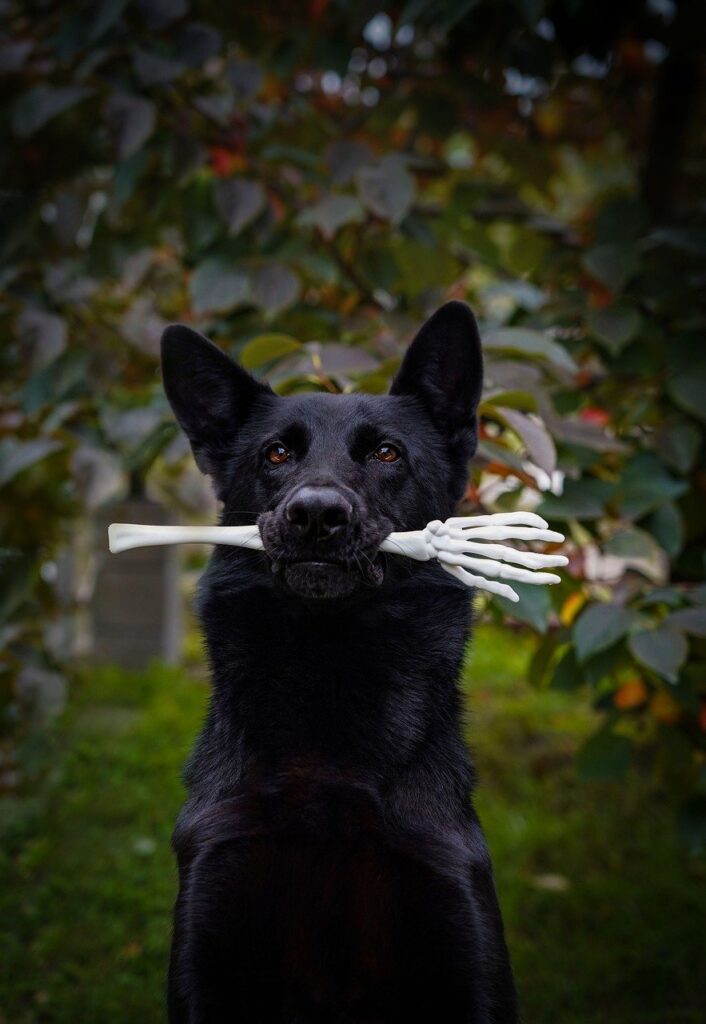Can Dogs Eat Cloves? – No, They Can’t
In the simplest terms, the answer is a resounding No. Cloves, although a common and aromatic spice for humans, come with a bundle of risks for our four-legged friends. They contain a substance called eugenol, which can be toxic to dogs if ingested in significant amounts. The strong scent and flavor of cloves that we find appealing might also be overwhelming for dogs, leading to potential digestive issues and discomfort.
Can Puppies Eat Cloves?
For puppies, cloves are an absolute no-go. Their developing bodies are even more sensitive than those of adult dogs, and their liver and digestive system may not handle the compound eugenol very well. Introducing cloves to a puppy’s diet can lead to severe health concerns, including liver toxicity. It’s crucial to be extra cautious with what young dogs ingest, as their bodies have less capability to detoxify harmful substances.
Why is Cloves Harmful for Dogs?
Cloves might be small, but the dangers they pose to dogs are significant. This spice is particularly harmful due to several factors that we, as responsible pet owners, should be aware of.
Eugenol Toxicity
The primary danger of cloves comes from eugenol, a compound that is used in a variety of products, from foods to essential oils. In dogs, eugenol can lead to a range of health issues, including liver failure, if ingested in large quantities. Just a small dose can cause symptoms in dogs due to their sensitivity to this substance.
Gastrointestinal Distress
Cloves can cause stomach upsets in dogs, resulting in symptoms like vomiting and diarrhea. The spice’s strong smell and flavor are unnatural for the canine palate, making it a potential irritant for the digestive tract. Gastrointestinal distress can lead to dehydration and discomfort.
Oral Irritation
Dogs that chew on whole cloves may experience irritation in the mouth, gums, and throat. The potent natural oils present in cloves can also lead to inflammation and a burning sensation in these areas, which is uncomfortable and potentially harmful if not treated.
Symptoms to Watch Out For After Dogs Consume Cloves
- Lethargy and Weakness: If a dog ingests cloves, they may become unusually tired or weak, a sign of toxicity taking effect.
- Vomiting or Diarrhea: An upset stomach is a telltale indication that your dog’s digestive system is not agreeing with the ingested cloves.
- Oral Discomfort: Watch for signs of your dog pawing at its mouth or showing reluctance to eat due to irritation caused by cloves.
Immediate Steps to Take if Your Dog Eats Cloves
- Do Not Induce Vomiting: It’s important to avoid making your dog vomit, as this can cause additional harm.
- Contact Your Vet: If you’re certain or even suspect your dog has eaten cloves, it’s crucial to get professional advice from your veterinarian immediately.
- Monitor Your Dog: Keep a close eye on your pet for any symptoms and follow the vet’s instructions for any necessary treatments.
Safe Alternatives to Cloves
While cloves are dangerous for dogs, there are safe alternatives that they can enjoy. Consider offering your dog these safer food options instead:
- Carrots – These are a crunchy and nutritious snack high in fiber and vitamin A, which is good for a dog’s vision and skin.
- Apples – Apples (without seeds) are a sweet treat loaded with vitamins and can help to clean a dog’s teeth.
- Pumpkin – This is a beneficial food for a dog’s digestive health, just make sure it’s plain and not the spiced pie filling.
Conclusion
In conclusion, cloves should never be on the menu for our furry companions. The key dangers that cloves pose to dogs include toxicity, gastrointestinal upset, and oral irritation. Always err on the side of caution and keep this spice out of reach of your pets. By providing safe and healthy alternatives, you can ensure that your canine friend enjoys a well-rounded and risk-free diet.
Frequently Asked Questions
Can dogs have clove oil?
No, dogs should not have clove oil as it concentrates the eugenol content, increasing potential toxicity.
Are any spices safe for dogs?
Some spices like turmeric and cinnamon can be safe in small amounts but always consult with a vet before adding them to your dog’s diet.
What symptoms indicate clove toxicity in dogs?
Signs include vomiting, diarrhea, abdominal pain, and liver failure signs like jaundice, which includes yellowing eyes and gums.
Is it safe to use cloves around dogs?
Using cloves in cooking is generally safe, but the cloves and dishes containing them should be kept away from your dog.



